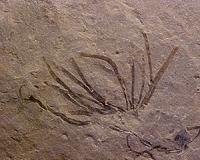| . |  |
. |
Jakarta (AFP) Feb 17, 2011 More than 1,000 captive orangutans set for release into the wild on Borneo island are being sent into a "killing field" of illegal logging and poaching, conservationists said Thursday. Indonesia has reserved 86,450 hectares (214,000 acres) of forest in Muara Wahau, East Kalimantan province, for the rehabilitation of 1,200 captive big apes over the next four years. But the independent Centre for Orangutan Protection (COP) warned that the endangered mammals were being sent to their deaths unless the government also managed to stop illegal logging and poaching, which is rampant in the region. "Without law enforcement and security guarantees from the government, releasing them to the forest is like sending them to a killing field," COP chief Hardi Baktiantoro told reporters. He said local communities were responsible for most of the destruction of flora and fauna in Muara Wahau. In the last three months of 2010, the COP rescued four orangutans that locals had caught and were offering for sale for up to 2.5 million rupiah ($280) each. "The forestry ministry should deploy the forestry police to protect orangutans in the wild from poaching and save their habitat from illegal logging," Baktiantoro said. Forestry ministry conservation chief Darori said the COP's findings would be investigated. "We will look into the findings. If what they said were true, we will certainly find a better forested location for the orangutans," he told AFP. Experts say there are about 50,000 to 60,000 orangutans left in the wild, 80 percent of them in Indonesia and the rest in Malaysia. They are faced with extinction due to poaching and the rapid destruction of their habitat.
earlier related report More than 200 reptiles were discovered in water-filled tanks in Boonlue Prasitsom's warehouse in Ang Thong province, central Thailand, during a morning raid by Thai Nature Crime Police. "At first we didn't expect to find so many lizards, but it turned out to be a lot. He is one of Thailand's main lizard poachers," inspector Kiattisak Bamrungsawat, deputy commander of the wildlife force told AFP. He said Boonlue was believed to be planning to smuggle the creatures through Laos into China on Friday. The arrest is part of a crackdown on lizard smuggling as Thailand struggles to stem the flow of protected species through its borders. Conservation group Freeland Foundation said the raid was an "important step" in an investigation into a criminal network that authorities believe is behind "trafficking huge amounts of threatened wildlife into China". "Freeland congratulates the Thai Nature Crime Police for acting swiftly and professionally on a tip-off that has put a wildlife criminal out of business, while freeing hundreds of wild animals," said the organisation's director Steven Galster. Boonlue had allegedly been poaching lizards from the wild for over 10 years, Freeland said. Police were clearly impressed with the suspect's skills at handling the creatures and even required his help in transporting them. "I think he is the best lizard catcher in Thailand, he is very professional," Kiattisak said. Boonlue now faces a maximum of four years in prison and a 40,000 baht fine (about $1,300). Monitor lizards are a common sight in Thailand's waterways and police said the protected species is poached for export, mainly to China and Vietnam where they are prized for their meat. Freeland said both countries are the major consumers of Southeast Asia's protected reptiles and the region is a source of illegal wildlife "supplying a vast global market whose profit margins are surpassed only by drugs and arms". Last week police arrested an Indonesian man carrying hundreds of live animals in his airport luggage, including dozens of snakes and one of the world's rarest tortoises. He is thought to have picked them up at one of Bangkok's biggest markets.
Share This Article With Planet Earth
Related Links Darwin Today At TerraDaily.com
 Putting The Dead To Work For Conservation Biology
Putting The Dead To Work For Conservation BiologyIthaca NY (SPX) Jan 21, 2011 Conservation paleobiologists-scientists who use the fossil record to understand the evolutionary and ecological responses of present-day species to changes in their environment - are putting the dead to work. A new review of the research in this emerging field provides examples of how the fossil record can help assess environmental impact, predict which species will be most vulnerable to e ... read more |
|
| The content herein, unless otherwise known to be public domain, are Copyright 1995-2010 - SpaceDaily. AFP and UPI Wire Stories are copyright Agence France-Presse and United Press International. ESA Portal Reports are copyright European Space Agency. All NASA sourced material is public domain. Additional copyrights may apply in whole or part to other bona fide parties. Advertising does not imply endorsement,agreement or approval of any opinions, statements or information provided by SpaceDaily on any Web page published or hosted by SpaceDaily. Privacy Statement |